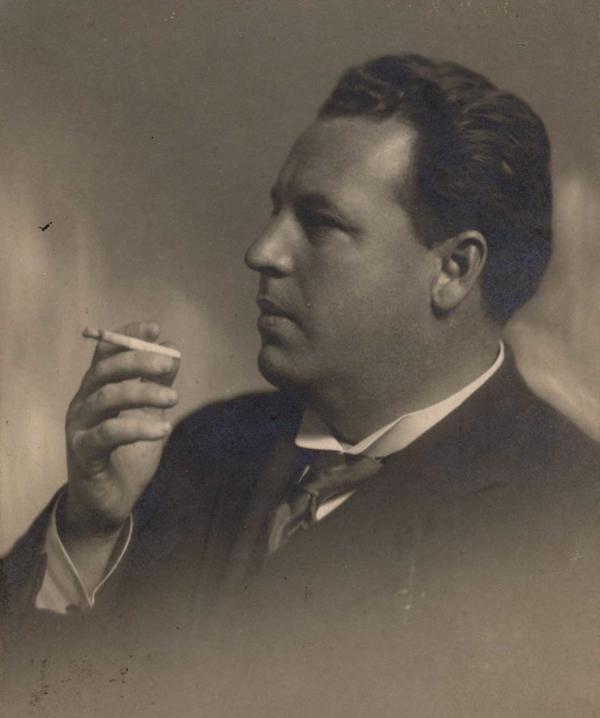Rūdolfs Bērziņš
He was originally an actor on various Latvian stages, primarily at the New Latvian Theater in Riga, where also operettas and operas were staged – and Bērziņš performed the occasional singing role, as well (e.g. Herr Fluth in Die lustigen Weiber von Windsor, Hugo in Undine, Faust or Ottokar (a buffo role) in Zigeunerbaron. He was always primarily a concert tenor, although he sang opera for a few years, primarily at the Zimin Opera in Moscow, and in Riga, where he was Lenskij in the very first performance of the Riga opera theater on December 27th, 1912 (January 9th, 1913). In Riga, he sang also Alfredo, Turiddu and Sinodal, later Ottavio and Walther von der Vogelweide. From 1929 onwards, he was successful in operetta both at the Daile Theater in Riga and in Liepāja; he sang Franz Schubert in Dreimäderlhaus 263 times. After taking part in the 1905 anti-tsarist revolution, he was imprisoned twice, for a total of ten months. In 1907, he fled to Denmark, where he worked as a Russian teacher, and gave a few concerts. Denmark gave him a passport on the name of Rudolf Salenius, and it was under this name that he started a career as an operatic tenor in Germany (Stuttgart, Münster, Halle) in 1911, specializing in Wagner. During WWI, he was back in Denmark, and only in 1919, after the end of the tsarist regime, he returned to Latvia, where he sang (under his real name) at the Riga opera until 1928: Tristan, Lohengrin, Radamès, José. After that, he sang primarily in concerts, as his voice was exhausted. But he continued to work in opera, now as a stage director, and as a voice teacher. When the Soviets occupied Latvia for the first time in 1940, he turned out to be a communist, and when the Nazis expelled the Soviets the next year, he fled to the USSR. He came back with the Red Army in 1944, and became the first Soviet artistic director of the Riga opera theater (until 1946). His repertory further included Samson, Herodes, Kuterma, Éléazar, Stolzing or Canio.
Reference and picture source |
